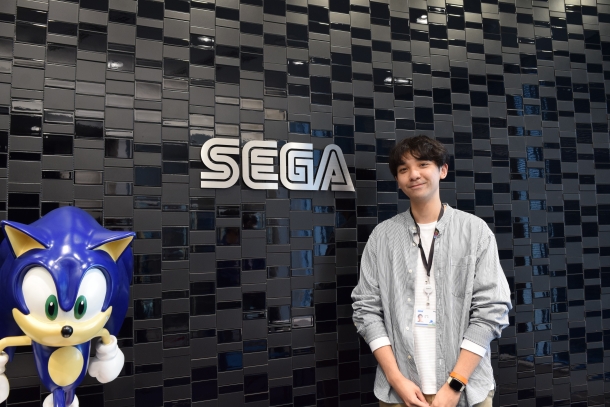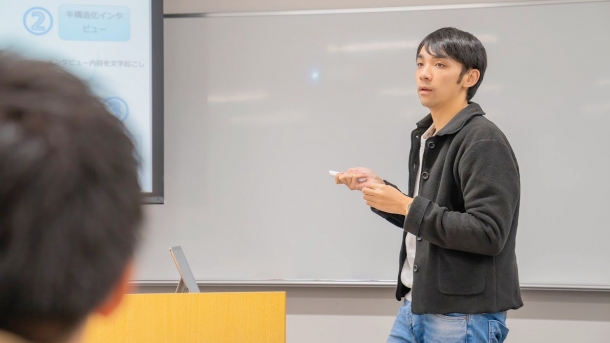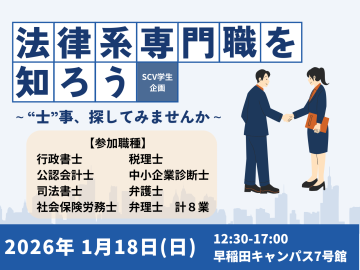Turn your hobby into your job for true happiness!
Liang Ke
Currently working at Sega Corporation
Originally from China
Graduated from Graduate School of Japanese Applied Linguistics

Acquiring Japanese language skills through anime
I am from Guangxi, China, and came to study in Japan in September 2018 after majoring in English at the Shanghai University of Technology. After studying at Sophia University for one year as a research student of Japanese language education, I entered Waseda’s Graduate School of Japanese Applied Linguistics to deepen my understanding of the Japanese language. During my studies, I learned not only the linguistics of Japanese, but also techniques for teaching Japanese, the various backgrounds of Japanese language learners, the circumstances surrounding Japanese language education around the world, and cross-cultural communication know-how.
Since I was a child, I have loved Japanese anime and games so much that I joined the Waseda Animation Lovers Team club in graduate school, so I naturally learned Japanese while watching series with subtitles. Wanting to help self-study Japanese learners like myself, I also participated in teaching Japanese to elementary school children in Japan as a practical subject during graduate school. In order for students to learn the language while having fun, I incorporated games into the lessons to make them easier to understand.
Determining whether a workplace allows you to make the most of your individuality and abilities
I wanted to work in the Japanese entertainment industry after completing graduate school, so I was very grateful for the Japanese system of hiring new graduates. In Europe and North America, it is difficult to get a job completely unrelated to one’s major, but thanks to Japan’s system of hiring new graduates, there are plenty of opportunities to work regardless of one’s major, especially as a humanities student.
A question I thought was most important to ask when I was interviewing for different companies was: “Is it possible to do a job where I can use my talents without my work content being restricted just because I am a foreigner?” So when I met with HR managers, I asked them how many foreigners they had hired, what kind of jobs there were, and what kind of careers were available to foreigners. During the recruitment interview at Sega, where I currently work, an HR manager introduced me to senior employees who were Chinese nationals and gave me the opportunity to meet with them. At the time, I had also received a job offer from another company, but through the interviews at Sega, I felt that the vibe given off from the employees was very positive, and the decisive factor was that the staff gave me the reassurance that I was wanted there, so in the end I chose Sega.
When I was looking for a job, I first participated in the Boston Career Forum, a job-hunting event in the United States, which I had learned about through one of my seniors from China. Because it was held online due to the COVID-19 pandemic, I could participate without actually going to Boston. It was not like the general recruitment in spring, but an early recruitment, so I received a job offer in January.
What I struggled with during job hunting was drafting my application statements, known as “entry sheets” in Japanese. I wrote down my strengths according to the background and characteristics of each company, and the type of job they were hiring for. For example, in the case of a career-track position, I emphasized how I was able to demonstrate my leadership through experiences I gained during my time as a student, but when applying for a creative job, I wrote mainly about my thoughts on creativity. Also, I bought a lot of reference books and studied for exams using web-based tests such as Tamatebako and SPI. I remember it was difficult to find time to study while writing my master’s thesis.
For interview practice, I had a Japanese friend help me. Since the interviews were online, I paid attention to details such as looking at the camera. During my interview, I was asked about my interest in and knowledge of games, but since I am an otaku, I got excited when I started talking (laughs).

Liang giving his end-of-term presentation during his graduate school days
Feeling a sense of accomplishment from being able to deliver your own ideas
In my first year at the company, I was in charge of product management. I mainly communicated with the European branch offices in English. Specifically, when selling a game produced in Europe in Japan and Asia, we had to think about approaches that would match those markets, such as Chinese New Year events in China. I feel a sense of accomplishment when my ideas come to fruition and are delivered to the players. Currently, I am taking on the new challenge of selling games developed by external manufacturers in Japan.
When I was a student, I wanted to enter the animation and game industry and become a creator such as a scriptwriter. On the other hand, as it was a specialized field where I had no experience, I was worried that I might not know what to do if my project didn’t go through, so I had a lot of trouble choosing a career when I was job hunting. As a result, I joined SEGA as a career-track employee, but the work is full of challenges, it lets me use my creativity, and I am gaining lots of knowledge and experience, so I feel it is worthwhile.
Improving various Japanese language skills
I would like international students to start by asking themselves whether they really want to work in Japan. If you don’t have a clear idea of what you want to do, you won’t be able to envision a specific career, and your hesitation will be felt by the interviewing side too, so I think it might be difficult to proceed forward. But if you 100% want to work in Japan, I hope that you never give up. If you prepare well and go into job hunting in good condition, you will definitely succeed.
Also, it may seem obvious, but I felt that Japanese language ability is extremely important at every stage of job hunting. In addition to skills such as writing entry sheets, and answering and asking questions during interviews, the business world requires problem-solving skills and language skills to correctly understand the other person’s intentions.
If you don’t have confidence in your Japanese, please join a local club and try to make Japanese friends. When I first came to Japan, my Japanese wasn’t that good, but playing online games with friends almost every day helped me a lot to learn vocabulary, for example. I believe that the language skills you acquire everyday will definitely come in handy later in life.
※Read the original report in Japanese from HERE!






